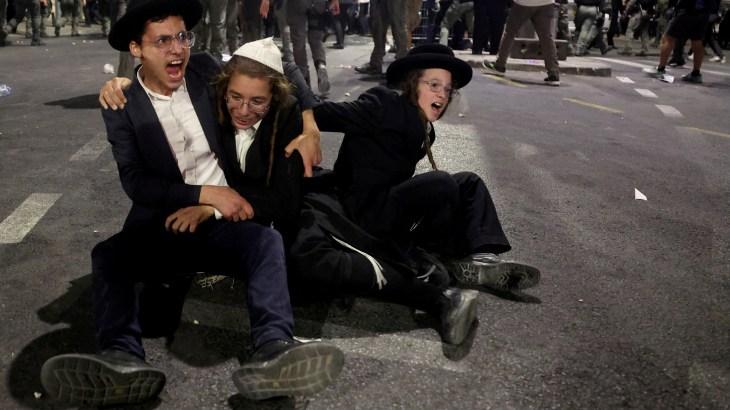Source: ALJAZEERA
ALJAZEERA MEDIA NETWORK

An examination of the protests and demands surrounding the conscription of ultra-Orthodox Jews in Israel.
Ultra-Orthodox Jews in Israel are demonstrating against their compulsory military conscription, provoking clashes with law enforcement. The ongoing removal of their exemption has caused discontent within the religious community, leading to confrontations even with their political representatives.
The Haredim, or ultra-Orthodox Jews, are a devout sect that adheres strictly to Jewish traditions, isolating themselves to focus on spiritual practices. Their distinctive attire and lifestyle emphasize separation from mainstream society to preserve their purity and devotion.
Haredim are fervently Orthodox Jews who prioritize prayer and religious study above all else. Originating in 19th-century Europe, they resist modern influences to safeguard their faith and customs.
The exemption for Torah study protected Haredim from military service, stemming from an agreement predating Israel's establishment. Initially designed for a small group, the exemption faced criticism as the ultra-Orthodox population grew substantially, leading to debates on ending the blanket exemption.
Reacting to the increasing number of Haredim avoiding military duty, Israeli authorities sought to enforce conscription, triggering opposition and protests among the religious communities.
Following court rulings to draft yeshiva students, tensions escalated as the Haredim resisted military service due to religious convictions and fears of compromising their beliefs in army settings. Discontent grew as Israeli society debated the equitable sharing of national responsibilities.
Haredim reject military service for various reasons, citing conflict with religious obligations, societal isolation concerns, and ideological differences. The reluctance is also underpinned by anti-Zionist sentiments and a deep-rooted commitment to religious pursuits.
Your email address will not be published. Required fields are marked *